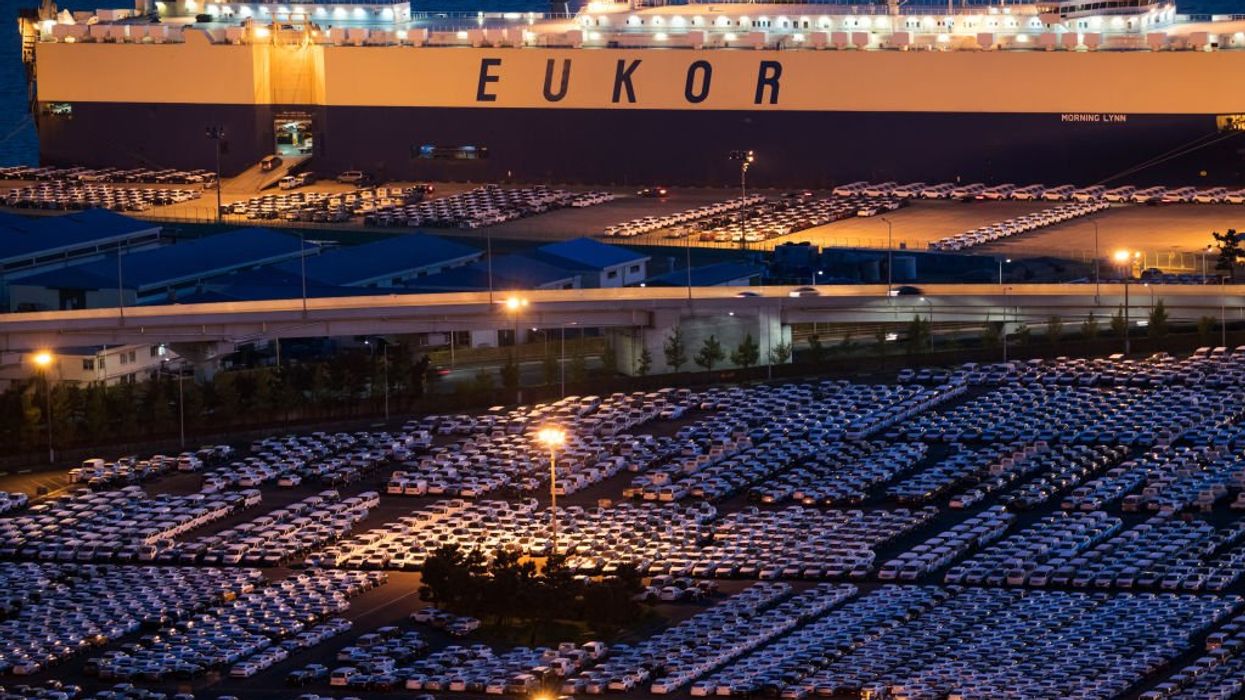
Bloomberg/Getty Images

My visit to the 2024 Busan International Mobility Show reveals the innovation that can happen free of EV mandates.
Busan is the cleanest city I've ever seen: not a cigarette butt or gum wrapper on the ground. No garbage pails either. I'm told that if people see litter on the ground, they pick it up and put it in their pocket until they can throw it away.
Last month, I was in Korea's second-largest city for the 2024 Busan International Motor Show, which has been held biennially since 2001. Starting this year, it has a new name: the Busan International Mobility Show, which better reflects the wider range of transportation innovation it hopes to showcase.
[Hyundai] has built every vehicle it makes to be either hybrid, gas, or electric. The company was smart enough to say, 'Let's make this like Lego: same body, different drive line underneath.'
I didn't see any flying cars, but my visit did give me the chance to reflect on the rise of the Korean automobile industry in the last two decades.
Korean cars have been in the United States market since 1986, with the Hyundai Excel. That car was a huge hit with American consumers, but quality issues over the long run gave it and other Hyundai models a bad reputation.
In 1998, Hyundai decided to change its poor reputation abroad by making massive investments in design, quality, and marketing.
It looked at how the Japanese were offering packaged trim levels and did the same.
It also looked at the typical U.S. three-year, 32,000-mile warranty and decided to more than triple that: 10 years, 100,000 miles, including basic maintenance. To this day, no other manufacturers have tried to compete on warranty. The Germans have extended their warranties to four years, 50,000 miles, which hasn't kept Hyundai from taking a big chunk of their market.
Hyundai also began manufacturing in America. It 2005, it opened a factory in Montgomery, Alabama; followed by a Kia factory (Hyundai has been Kia's parent company since 1997) in West Point, Georgia, in 2010. The latter expects to roll its five millionth car off the assembly line sometime in 2025.
Last year Hyundai's luxury brand Genesis began producing the Electrified GV70 SUV in the Montgomery plant, the first Genesis model to be manufactured in America.
I spoke to Hyundai head Jay Chang about their EV strategy. While vehicles the Kia EV9 have gotten a lot of acclaim, I asked him point blank what happens if the market for EVs collapses? His answer was simple: we'll make electric vehicles if people want them.
Unlike us, Hyundai doesn't have an EV mandate; moreover, it's realized electric cars aren't the answer. So instead of going all in, it's built every vehicle it makes to be either hybrid, gas, or electric. The company was smart enough to say, "Let's make this like Lego: same body, different drive line underneath."
And now that the Genesis line is competing with luxury vehicles Lexus and Mercedes, it's beginning to go after the performance market — vehicles like BMW's M series and Audi RS — with its Magma line. I spoke a little with Hyundai Motor Group president and chief creative officer Luc Donckerwolke about this, and the company has assembled some top-notch talent, including veteran Porsche engineer Manfred Harrer as well as BMW veteran (and recent Hyundai head of R&D) Albert Biermann.
While in Korea I was also able to visit Ulsan and tour the largest car factory in the world. No cameras allowed, unfortunately, but I did watch as vehicles were loaded onto a ship with unbelievable grace and precision: It was like one big musical number. They loaded 12 floors of cars (over 10,000 vehicles in all) in six hours.
It's important to note here that not only is Hyundai half-owned by the Korean government, but it's very well vertically integrated. Hyundai owns a steel company as well as a chip company — the latter, MegaChip, gave Hyundai a huge advantage during the supply-chain crisis.
See below for some of my video from the 2024 Busan International Mobility Show:
- YouTubewww.youtube.com
Lauren Fix